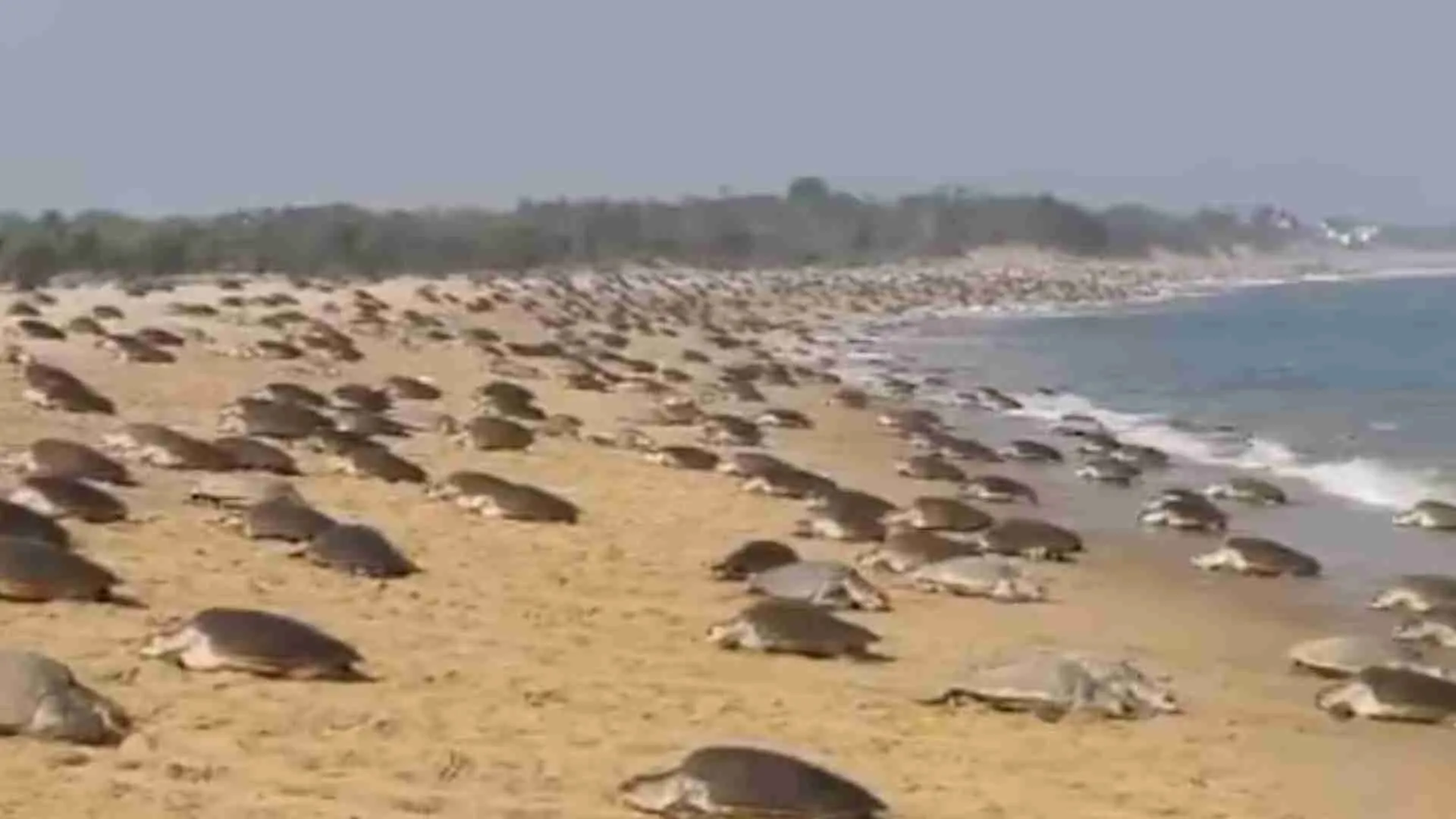Endangered Olive Ridley turtles have made a remarkable comeback at Eakakulanasi Island in the Gahirmatha Marine Sanctuary, Odisha, marking the first mass nesting in 33 years. According to Assistant Conservator of Forests Manas Das, the pristine beach has undergone natural changes that now favor turtle nesting.
Beach Transformation Sparks Return
Das explained that prolonged sea erosion had initially shortened the beach, but since 2020, sediment accretion has gradually extended the beach’s length from 4 km to 8 km. This transformation has created an ideal environment for the turtles to lay their eggs, prompting thousands to return. In 1992, the beach witnessed 300,000 turtles nesting, and now, in just the past two days, 170,000 have been recorded at Eakakulanasi, with another 263,000 nesting at the nearby Nasi-2 beach.
A Vital Milestone for Conservation
The return of these turtles is seen as a significant success for the Odisha Forest Department’s conservation initiatives. Gahirmatha, located in the Kendrapara district, is internationally renowned as the world’s largest nesting ground for Olive Ridley turtles, while the Devi river mouth also hosts mass nesting events. After laying eggs, the turtles return to the sea, where their hatchlings are expected to emerge after 45 to 50 days—a natural process occurring without maternal care.
This resurgence not only highlights the resilience of nature but also underscores the importance of environmental protection and sustainable coastal management. As conservation efforts continue, experts remain hopeful that these positive changes will secure a safe haven for future generations of Olive Ridley turtles.





















